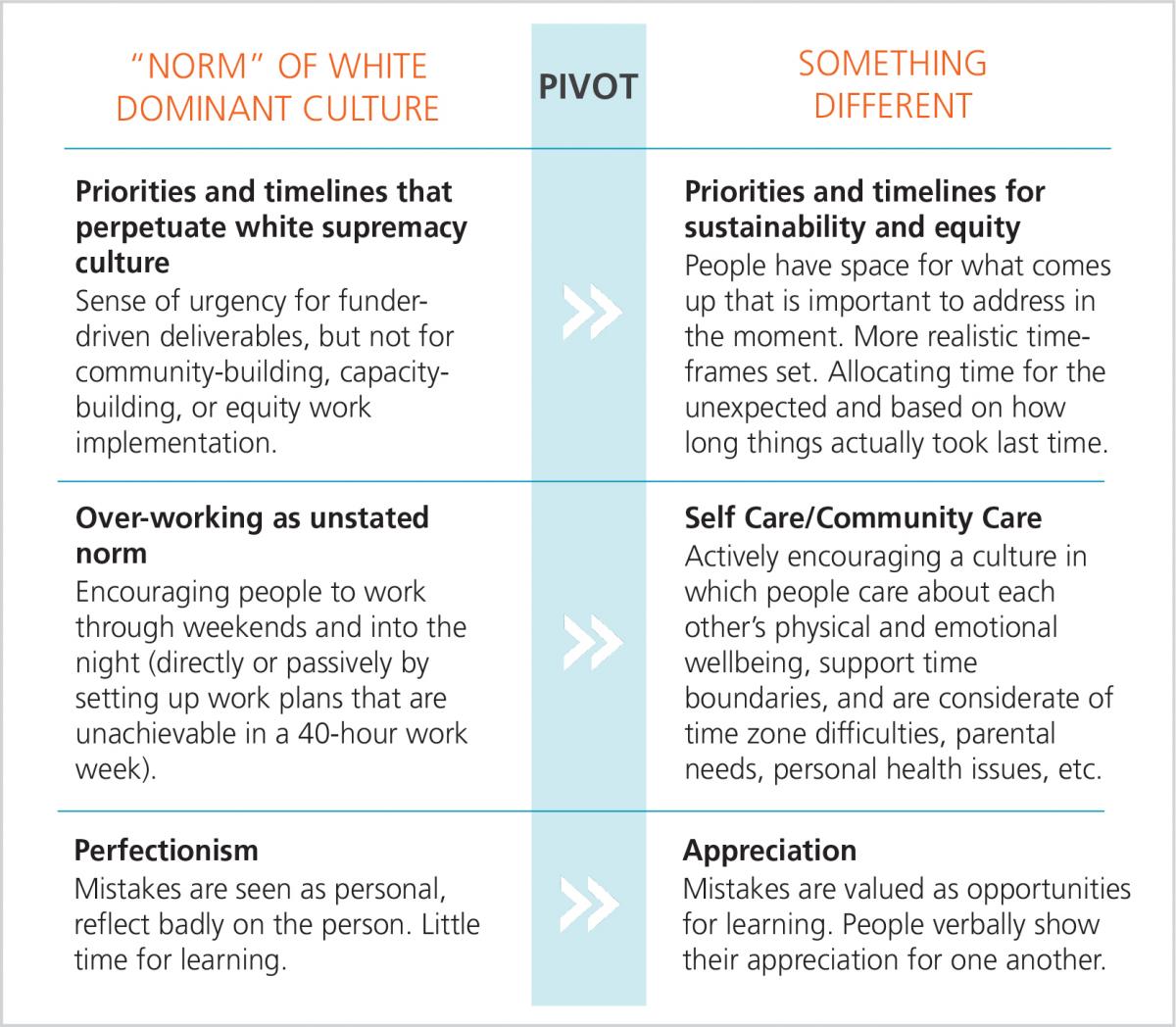
For about a year now FSG has been exploring how we can more effectively deliver on our work to help our clients create social impact. We’re examining our organizational culture and behaviors, our internal practices, policies, and processes, and evolving so that we can further live into our core organizational values: Commitment to Impact, Equity, Collaboration, Learning, and Vitality. When COVID-19 hit, many of those practices and policies, and cultural norms, went out the window, and we’ve needed to evolve quickly.
As we manage the challenges that come with this, we’re also trying to think about how our response might help catalyze the equitable systems change we crave. What can we learn from the way we’re working differently now with each other and our clients? What best practices might we carry forward when we’re on the other side of this crisis?
You will certainly face many organizational changes of your own in the coming months. Consider modeling and deploying these 6 practices and behaviors in your own company to weather COVID-19.
1. Focus on equity
The pandemic and response has presented countless challenges for organizations, teams, and individuals. In some ways, the pandemic has been a leveler, and we’re reminded on a daily basis of how much all of us are balancing. For example, employees and their managers may all be taking calls while holding infants or supervising online learning for young children. Colleagues may need to take time during a weekday to shop for and deliver food to elderly family members. At the same time, this crisis also reinforces existing inequities within organizations. For example, the manager may have the support of a babysitter or partner to help with childcare—something that a single parent or frontline worker may not have. Those without caretaking responsibilities may be shouldering more of the workload on their teams to compensate for others’ reduced capacity. People who are unable to use video for calls may be perceived as being less engaged or present.
During times like these, when inequities are emphasized, it can feel like systemic change is monumental and unachievable. Consider starting small and making changes in your sphere of influence. Can you make a choice at your own organization to focus on equity? Can you use this opportunity to educate yourself, your employees, and your stakeholders about what you can do to improve equity? In our work to shift organizational culture and behaviors at FSG, we are often inspired by this worksheet on white dominant culture and something different, adapted from Tema Okun and Kenneth Jones. Below I’ve shared some examples of some things I’ve observed beginning to shift at my own organization, and I’m hopeful that we’ll maintain those practices when we’re on the other side of this pandemic.

2. Be intentional about learning
While learning is a best practice under “normal” circumstances, it is especially important now while your workforce is dispersed. As my colleagues Hallie Preskill and Joelle Cook note in their recent piece Learning in a Time of Crisis, “this may mean putting aside some habits or expectations, such as feeling the need to be right or having the right answers; proving that something works; holding information/not sharing; and making sure that everything we produce looks polished, is perfect, or is proprietary.”
I’m particularly interested in embracing a micro-learning or “on-demand” approach for disseminating resources. Years ago I attended a conference session led by Patricia Byrd where she said that “content that is accurate and available now is better than perfect content that’s available a year from now.” The benefits of this approach, similar to Design Thinking, are 1.) Investing only the time needed for important topics that will have the most impact, and 2.) Deploying updates to smaller chunks of content. For FSG, we put together a “quick guide” for remote work tools and COVID-19 resources, including curated internal communications, health and wellbeing resources, guidance for client outreach and engagement, and tips and best practices for specific virtual facilitation tools and platforms. We’ve already begun to add to the quick guide with lessons learned and use cases from teams doing virtual facilitation, and we can expand on it more as needed. Don’t wait for it to be perfect! Share what you know now.
3. Curate
Kudos to you if you’ve been proactive with internal communications. Now it’s time to curate all of those messages, tools, updated policies, and resources in one location. Your employees have likely reached their capacity for managing and retaining new information and are experiencing decision fatigue. Make it easy for people to find what they need quickly and to digest it with little effort. Sometimes people just want you to tell them what to do!
4. Foster virtual community-building
Employees working from home may have gained time with their families, pets, and friends, but they’ve lost the benefits of being co-located with colleagues in an office. Utilize Microsoft Teams, Slack, or other chat-based tools, along with video conferencing services, to ensure a smoother transition to virtual conversation and collaboration. Being able to see faces and body language during a meeting can make a huge difference in maintaining connections and increasing productivity. While we encourage using video at FSG, we do not require it. Some colleagues and/or clients may not be comfortable with or able to use video from their locations. To ensure that we welcome and include all participants in a meeting, we may take extra time to explicitly welcome those who have joined by phone, or we may pause the conversation to hold space and invite input from those who weren’t able to “raise their hand” on the video.
5. Think outside the box when facilitating virtual meetings
There is no shortage of tools and platforms that support virtual facilitation, and the options can seem overwhelming. Familiarize yourself with what each tool can do, and be creative about how you can utilize them to work for you and your virtual audience. For example, in addition to Zoom, could you use Box Notes, Google Docs, or something like Mural for a virtual brainstorming session? Could you leverage Zoom breakout rooms, Box Notes, and Mentimeter (polling software) for a Data Gallery or World Café? If you’re looking for some great facilitation resources, check out Facilitating Intentional Group Learning: A Practical Guide to 21 Learning Activities and Liberating Structures.
6. Be vigilant with your time
Last but not least, everyone is in the same difficult situation of balancing professional work, caring for ourselves and perhaps others, and absorbing and processing the ever-changing news of the world. No combination of tips, tricks, or time management methods is going to make any of this more manageable. We have to do what we can with what we have and prioritize essential work over “nice-to-have” work as much as possible. Allow yourself and your employees to focus on essential work, provide value to your clients, and let go of the rest. For me, this has meant leaning into the discomfort of uncertainty and preparing to take more risks. During times of great change, it’s common and understandable for us to revert back to legacy behavior, and I spent the last month focusing on familiar work that felt comfortable and safe. Now, I’m hoping to challenge myself and my organization to take advantage of this disruption to move our organizational change effort forward.
Organization leaders have an opportunity right now to guide their employees with purpose through this daunting time, and steps that they take will make a difference in how employees and stakeholders endure and recover from the experience. For FSG, I’m hopeful that we’ll embrace and maintain some new and successful practices and behaviors.
